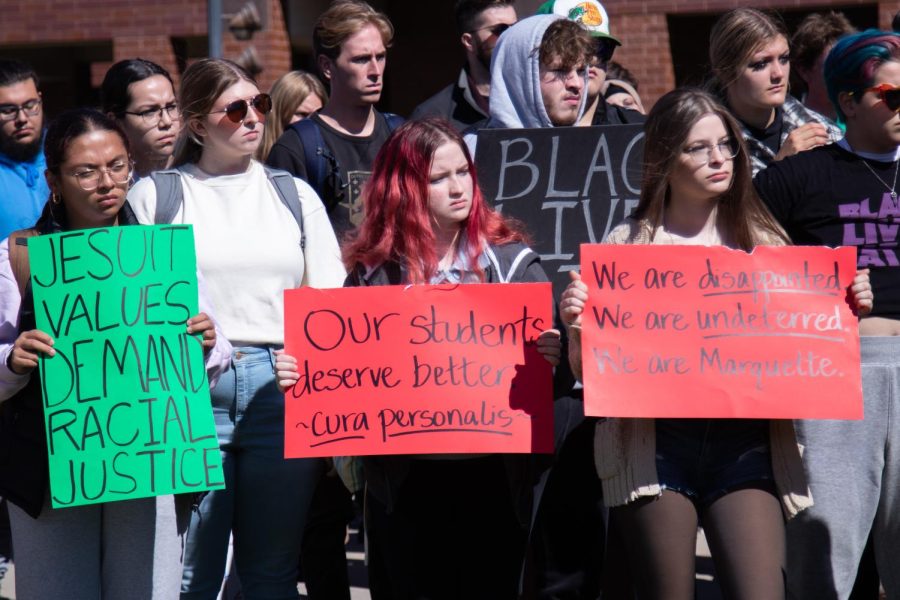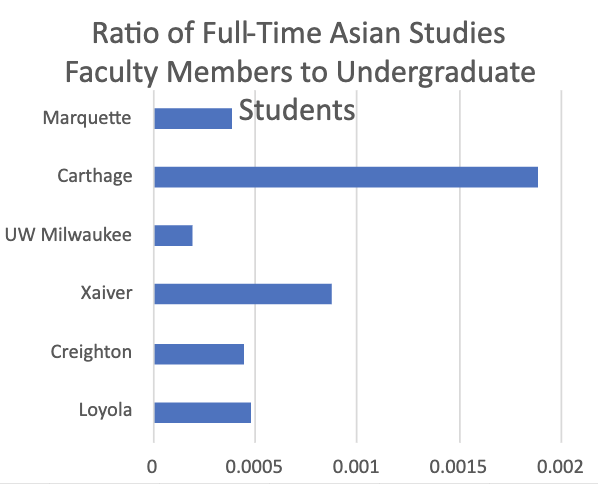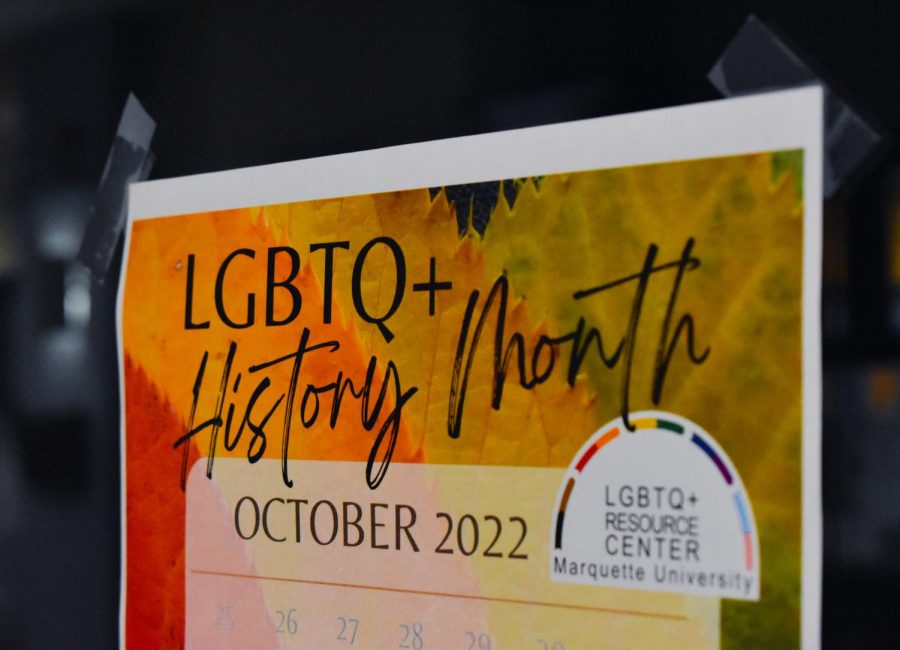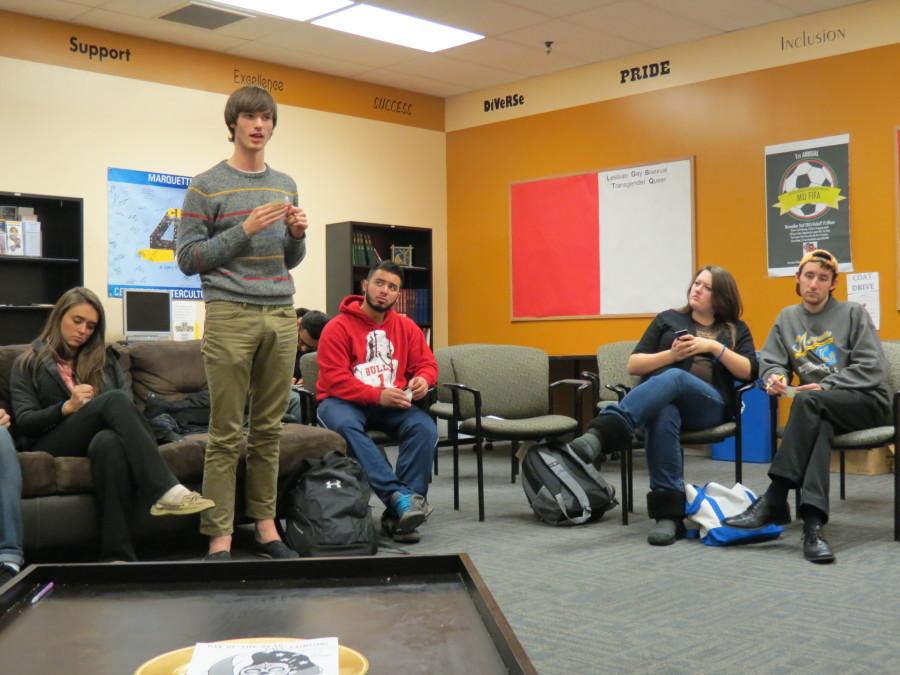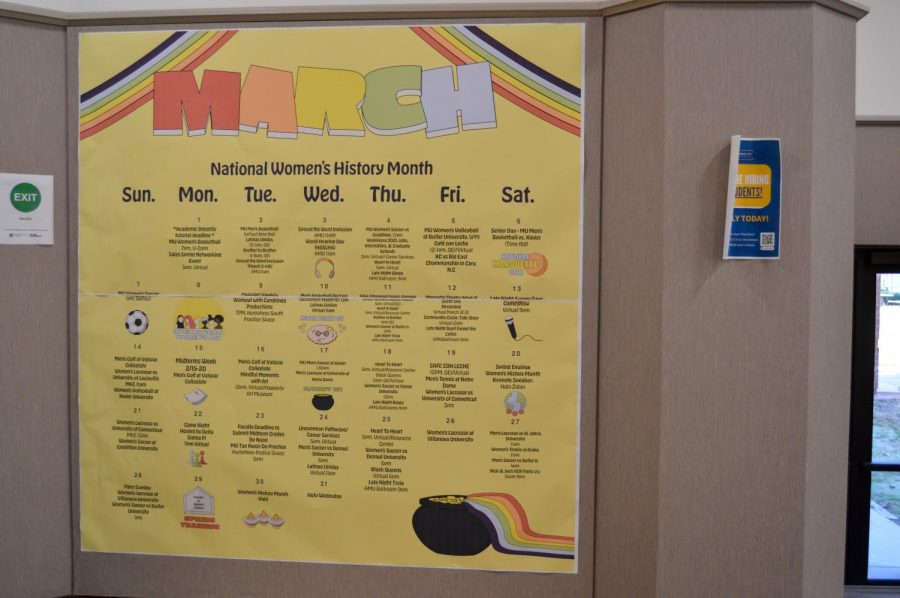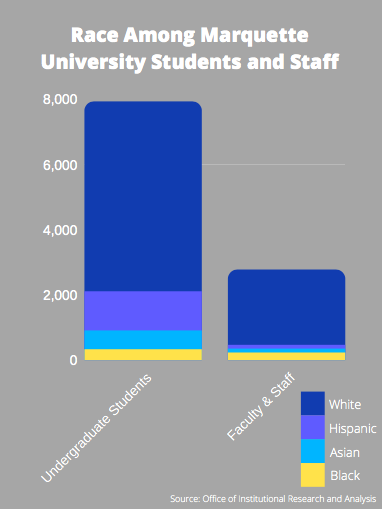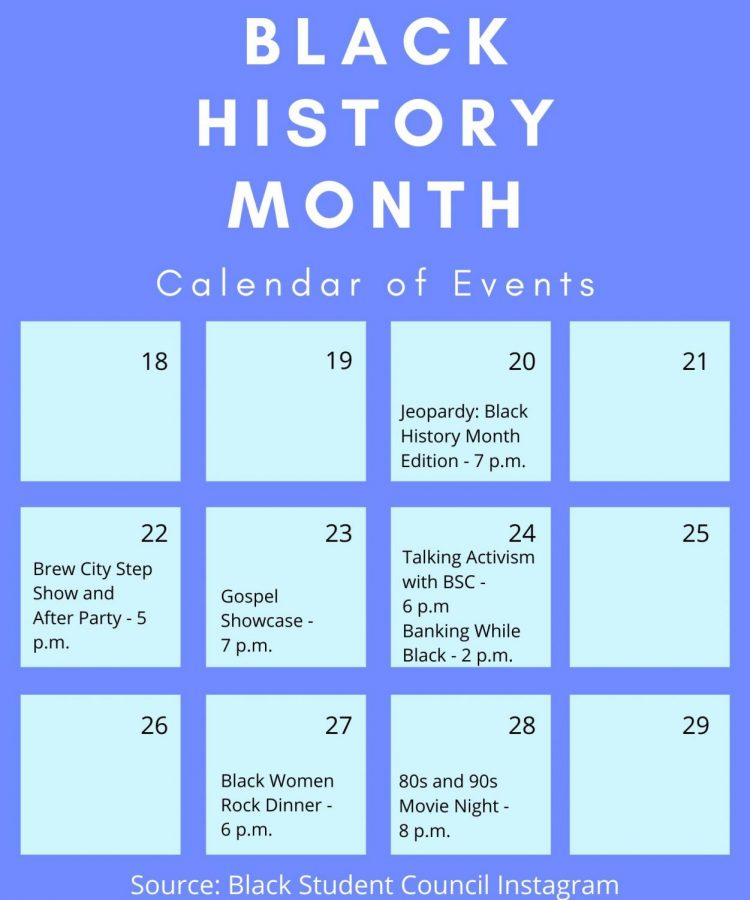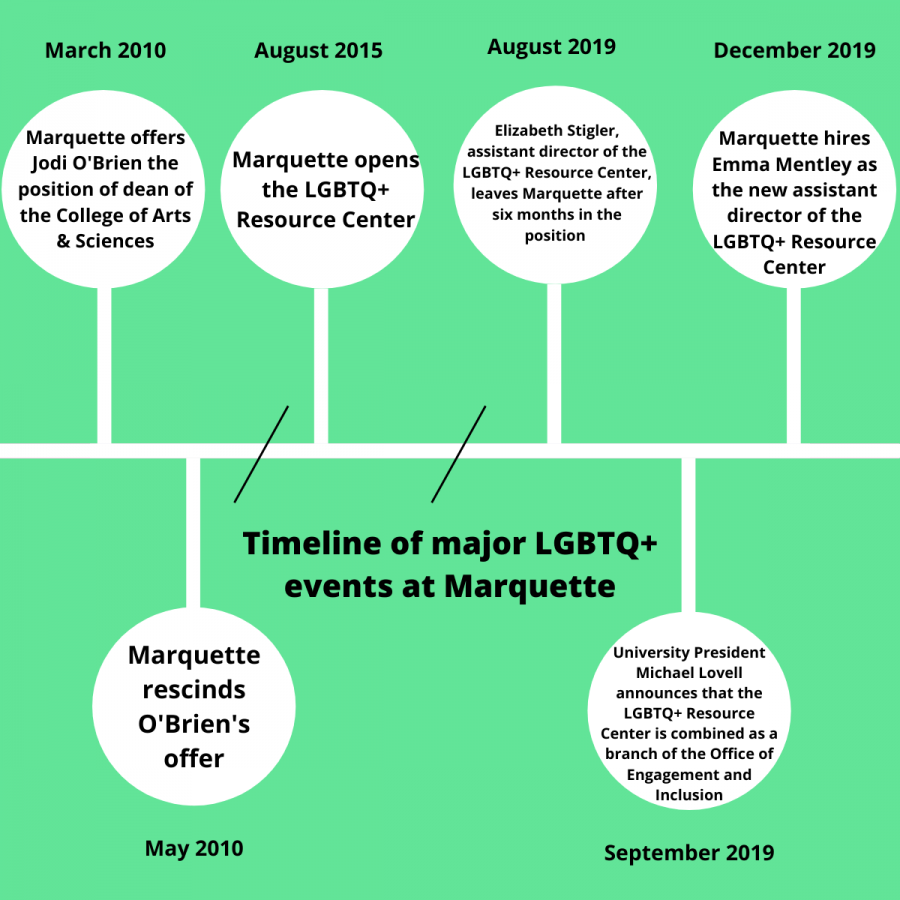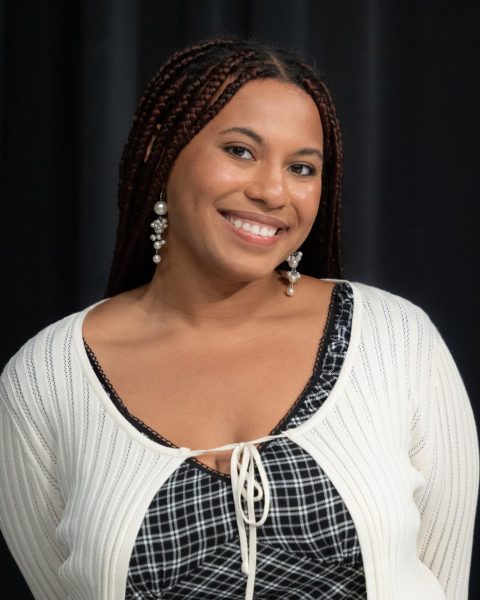Members of the Marquette community show pride as they celebrate LGBTQ+ History Month throughout October.
“The LGBTQ+ Resource Center here at Marquette recognizes LGBTQ+ History Month with initiatives rooted in history, awareness and growth,” Emma Wuetrich, assistant director of the Office of Engagement and Inclusion, said.
OEI is hosting several events on campus throughout LGBTQ+ History Month. Some of the events ran by the center include trivia at the Annex and “Here and Queer” — an exhibit held at the Alumni Memorial Union Rotunda that educates community members by presenting snippets of campus social justice pursuits, student opinions, and queer advocacy.
Additionally, this month-long celebration will culminate with Boo Fest, a Halloween celebration, which will take place on Halloween night at the AMU.
Wuetrich also emphasized the different focuses and importance both LGBTQ+ History and Pride Month have.
“The LGBTQ+ Resource Center here at Marquette recognizes LGBTQ+ History Month with initiatives rooted in history, awareness, and growth … History month is important because our history is important. Marquette is a college campus where inequity and bias for queer students still exists,” Wuetrich said.
Pride Month occurs in June in acknowledgment of the Stonewall riots, a series of protests in an attempt to gain equal rights. LGBTQ+ History Month is meant to focus on history and awareness.
“I think part of what is so important about this month is the recognition of the long history of LGBTQ identities. When we study the premodern past, it is clear that gender has long been expressed along a continuum and that identities have never been strictly binary,” Leslie Knox, a professor in the history department, said.
LGBTQ+ History Month is sometimes confused or likened to Pride Month, which takes place in June; however, the purposes of these months are completely different.
“Pride Month has a greater emphasis on queer joy and celebration. I think the distinction is necessary because LGBTQ+ history and oppression can be dark and challenging topics; it is important to have dedicated time for empowerment, uplift, and joy,” Wuetrich said.
Sarah Stanley a visiting professor said that LGBTQ+ history month is especially important because not everyone learns about it in school
“Unlike other communities, our history is not included in the general K-12 curriculum, rendering it invisible to most,” Stanley said in an email.
LGBTQ+ history month was created over 25 years ago to bring awareness to the queer community.
“Proposed by Missouri high school teacher Rodney Wilson in 1994, LGBTQ+ History Month was created to celebrate the diverse legacy of the Queer Community. October was selected in part to overlapping with Coming Out Day, which is October 11, said Stanley, a visiting assistant Professor that teaches Gender and Sexualities studies.
Coming out day is a dedicated day with the goal of celebrating those for being their authentic selves. The term “coming out” refers to an individual being open about their queer identity.
“LGBTQ+ History Month is an opportunity for members of the Queer community and our allies to make our past visible. But, it is also an invitation for those unfamiliar with the Queer community and who are willing to listen and learn about the past and the present of people different from themselves,” Stanley said in an email.
At Marquette the LGBTQ+ resource center will continue to acknowledge queer individuals in the Marquette community throughout October and the rest of the year.
“LGBTQ+ History Month is a call to action–a recognition of the past from which our people have risen–and a reminder that progress is a continuous struggle to be maintained, never a status permanently won,” said Stanley.
This story was written by Clara Lebron. She can be reached at clara.lebron@marquette.edu






